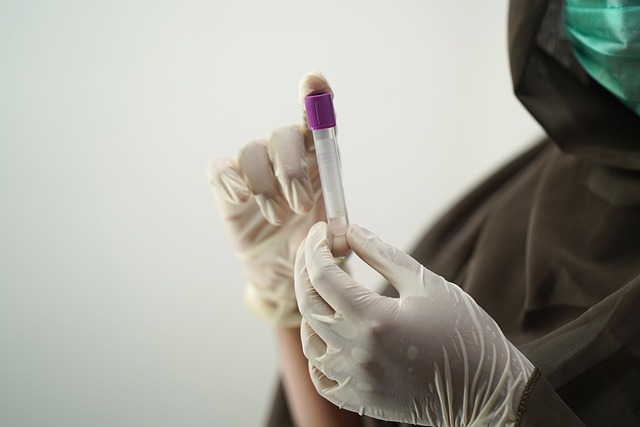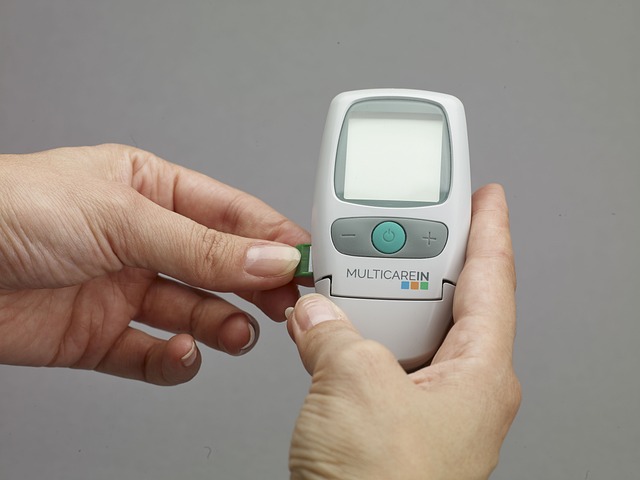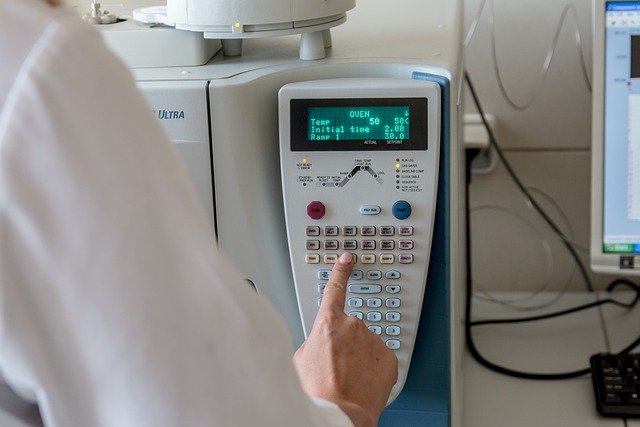The UK's healthcare system utilizes general health blood tests as a fundamental tool for health monitoring and diagnosis, accessible via the NHS during routine check-ups or when experiencing symptoms. With the introduction of home testing kits like General Health Blood Test UK, individuals can perform simple finger-prick tests from the comfort of their homes, making health management more accessible and enabling early detection of potential health issues. These kits allow users to order a test online, collect a blood sample using a lancet, and mail it to a lab for analysis by professionals. The lab provides a comprehensive report detailing key health markers such as glucose, cholesterol, kidney and liver function. While home testing kits offer convenience and the potential for early detection, their accuracy is comparable to clinical settings but not identical; therefore, it's crucial to consult healthcare professionals for any abnormal results. Users should ensure that the kit they choose has the necessary certifications and regulatory approvals to guarantee quality and accuracy. Home blood testing kits, including General Health Blood Test UK, are valuable tools when used in conjunction with professional medical advice, enhancing personal health management and informed decision-making.
Explore the evolving landscape of personal health monitoring with the rise of at-home blood testing kits in the UK. This article delves into the transformative role of general health blood tests, offering insights into their scope within the National Health Service (NHS) and beyond. We will navigate the process and myriad benefits of conducting these tests from the comfort of your home, while also evaluating their accuracy and reliability against traditional clinic results. Join us as we unravel the implications of this innovation for wellness management in the UK.
- Understanding the Scope of General Health Blood Tests in the UK
- The Process and Benefits of At-Home Blood Testing for Wellness
- Evaluating the Accuracy and Reliability of Home Blood Test Kits vs Clinic Results
Understanding the Scope of General Health Blood Tests in the UK

In the UK, general health blood tests are a pivotal tool for individuals seeking to monitor their well-being and for healthcare professionals in diagnosing various conditions. These tests offer a comprehensive overview of an individual’s health status by measuring key parameters such as glucose levels, cholesterol profiles, liver function, kidney function, and blood count components. The National Health Service (NHS) provides access to these tests, often as part of routine check-ups or in response to specific symptoms. Home testing kits for general health blood work have become increasingly accessible, allowing individuals to self-sample at home with a simple finger-prick procedure. This innovation has democratized health monitoring, empowering people to take proactive steps in managing their health in the UK. The results obtained from these tests can be critical in identifying potential health issues early on, when they are more treatable, or in maintaining optimal health by monitoring how lifestyle choices and treatments affect biometric markers.
The scope of general health blood tests in the UK encompasses a wide array of markers that provide insights into a person’s health. The availability of home testing kits, sanctioned by the NHS, has made it easier for individuals to track their health metrics regularly without the need for a clinical visit. These tests can reveal important information about an individual’s risk of developing chronic diseases such as diabetes or heart disease, and can also monitor existing conditions. The convenience and privacy of home testing have led to its growing popularity, with many opting for this method for peace of mind or as part of a preventive healthcare regimen. It is imperative for individuals to understand the significance of these tests and how they can serve as early warning systems, potentially influencing their health outcomes and lifestyle choices significantly.
The Process and Benefits of At-Home Blood Testing for Wellness

At-home blood testing kits have revolutionised the way individuals monitor their general health and wellness, providing a convenient and private means to assess various health indicators. The process begins with ordering a kit online from a reputable service. Upon receipt, the individual follows a simple procedure to collect a sample of blood from a fingertip using a lancet and collection tube provided in the kit. After collecting the blood sample, the user then seals the tube and ships it back to the laboratory using the prepaid envelope. At the lab, highly trained personnel perform a series of analyses to measure levels of key health markers such as glucose, cholesterol, kidney function, liver function, and more. The results are then interpreted by medical professionals who provide comprehensive, easy-to-understand reports that offer insights into the individual’s overall health status.
The benefits of at-home blood testing for wellness are manifold. For one, it offers a level of convenience that traditional clinical settings cannot match; individuals can complete the test at their own pace and on their own schedule. This approach demystifies health monitoring, allowing people to take charge of their wellness journey without needing to navigate the sometimes daunting healthcare system. Additionally, these tests are often more affordable than visiting a doctor or clinic for routine blood work. Moreover, regular self-monitoring can lead to early detection of potential health issues, enabling timely interventions and better health outcomes. In the UK, services like General Health Blood Test provide individuals with an accessible and informative tool for maintaining their wellness, thereby empowering them to live healthier lives.
Evaluating the Accuracy and Reliability of Home Blood Test Kits vs Clinic Results

The advent of home blood testing kits has revolutionised the approach to personal health monitoring, offering individuals a convenient and private means to assess their General Health Blood Test UK from the comfort of their own homes. These kits, which measure a variety of biomarkers, including glucose, cholesterol, and kidney function indicators, are designed to deliver results that are comparable to those obtained in clinical settings. However, the accuracy and reliability of these home tests have been subjects of scrutiny and debate. While the convenience factor is undeniable, it is crucial for consumers to understand the limitations and potential variations compared to professional clinic results. Clinical laboratories, staffed by trained professionals, typically use sophisticated equipment that adheres to stringent quality control protocols, ensuring high precision and accuracy. Home kits, while advancing in technology, may not always match this level of consistency due to factors such as sample handling, storage conditions, and the user’s competence in collecting and processing the samples. Nonetheless, reputable home blood testing kits undergo rigorous validation processes to ensure they meet a significant portion of the performance standards set by clinical laboratories. Users should refer to certifications and regulatory approvals when selecting a kit, as these indicate the kit’s adherence to certain quality and accuracy benchmarks. It is also advisable for individuals to cross-reference any concerning results with professional medical advice before making significant lifestyle changes or health decisions based on home test kits. By understanding both the strengths and limitations of home blood testing kits, consumers can effectively integrate them into their wellness regimen as part of their General Health Blood Test UK strategy, complementing the insights provided by healthcare professionals.
In conclusion, the advent of at-home blood testing for wellness in the UK has democratised access to health information, aligning with the evolving landscape of healthcare. With the guidance provided by understanding the scope of general health blood tests, individuals can now conveniently monitor their wellbeing from the comfort of their homes. The process and benefits outlined highlight a significant shift towards empowered self-care and proactive health management. While evaluating the accuracy and reliability of home kits against clinical results underscores the importance of contextualising these tests within a broader healthcare strategy, it is clear that at-home blood testing serves as a valuable tool in the UK’s approach to general health monitoring. These advancements not only cater to the busy lifestyles of today but also pave the way for more informed and personalised healthcare decisions.
